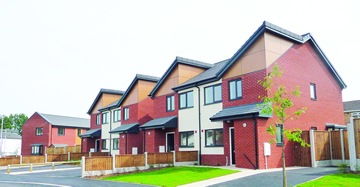Policy implementation, bane of housing development –Stakeholders
Housing problems in the country will be reduced to the barest minimum if the relevant policies to encourage its provision are implemented, stakeholders in the building and construction industry have said.
Some of them, who spoke at the 2014 Annual Housing Summit of the Faculty of Housing, Nigerian Institution of Estate Surveyors and Valuers, said lack of political will to do the needful had hindered the growth of the housing sector over the years.
A former President of the institution, Mr. Bode Adediji, who was the keynote speaker at the summit, said the development of housing in the country was still at its infancy stage despite all the policies and programmesrolled out by the government from one regime to another.
“Since the implementation of most programmes and policies over the years has been characterised by lethargy, it is imperative for the government at the highest level to summon the political will required for the rigorous implementation of all the policies and programmes in the housing sector,” he said.
He added that it had become a matter of urgency for the various amendments proposed for the Land Use Act to be finalised and enacted.
Adediji said that not only had the contribution of the sector to the country’s Gross Domestic Product remained negligible at 3.1 per cent, but the projection of the sector had remained bleak.
Adediji, who spoke on the multiplier effect of housing on the economy and the general well-being of the public, said the major factors fingered for crisis included difficult access to land and finance, government bureaucracy and policy implementation challenges.
“The size of Nigeria’s mortgage market, for instance, is just N224bn, representing less than one per cent of the country’s GDP, while mortgage loan from the commercial banks is less than one per cent of the total lending portfolio,” he said.
Another former President of NIESV, Mr. Jonathan Idudu, said as part of policy implementation, which the sector lacked, money should be provided for housing from unclaimed dividends.
According to him, only an instituted vibrant mortgage system will get the country where it ought to be in the area of housing.
“Like the project it is financing, mortgage should be long-term and of a single digit,” he said.
The incumbent President of the institution, Mr. James Omeru, said there was no political will on the part of the government to provide housing for the teeming population.
He said, “We are no longer thinking that humans should have roofs over their heads. For instance, the estate surveyor who manages houses is not even in the scheme of things.
“We should be made to advise the government that if it needs to get the housing issue right; the right professionals must be appointed.”
Using Singapore as a case study, a facility management consultant and real estate practitioner, Mrs. Hikmot Koleoso, said the Singaporean government rightfully recognised a home as a tangible asset and a means of financial security and hedge against inflation.
“Therefore a political consensus was arrived at that housing was a basic human need that should not be subject to free market mechanisms and that the society should be responsible for its supply,” she said.
Koleoso added that there was the need for the government to understand that public housing could only be relevant if it was affordable.
She said, “Hence, in addition to huge financing through subsidies, government must be willing to adopt ingenious mechanisms that will make the schemes affordable to the populace, such as the Central Provident Fund financing that was practised in Singapore.
“Fortunately, similar national social security schemes already exist in Nigeria in the form of the pension fund contributions. The method of construction must be practical and speedy. Provisions must be put in place to make the tenures of the homeowners secured and terms of payment made flexible in order to accommodate downturn in economic conditions.”
The Chief Executive Officer, Nigerian Mortgage Refinance Company, Mr. Sonnie Ayere, said reforms of the residential housing market and the mortgage industry were crucial.
According to him, the housing market is still plagued with prolonged and costly registration process, high cost of locally produced building materials, protracted foreclosure process and high interest rates.
Ayere said unique Public-Private Partnership initiates such as the NMRC would help drive growth in the housing sector.
The Vice Chairman, Housing Faculty of NIESV, Mr. Biodun Odeleye, stated that professional bodies in the built environment should as a matter of obligation consider the establishment of model mortgage institutions that would be funded by their members.
He added that such bodies should also embark on direct construction of low-cost model houses, using locally sourced materials, with minimal imported building components.
“This may be a welcome development, a paradigm shift and a major drive towards supporting the federal and state governments’ efforts in this regards,” he said.


